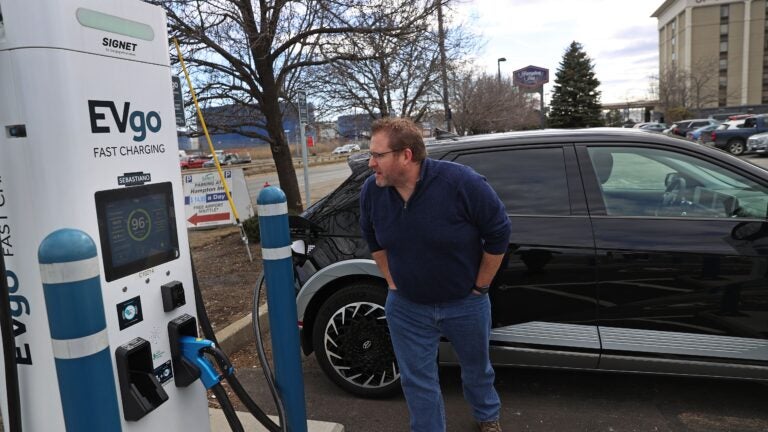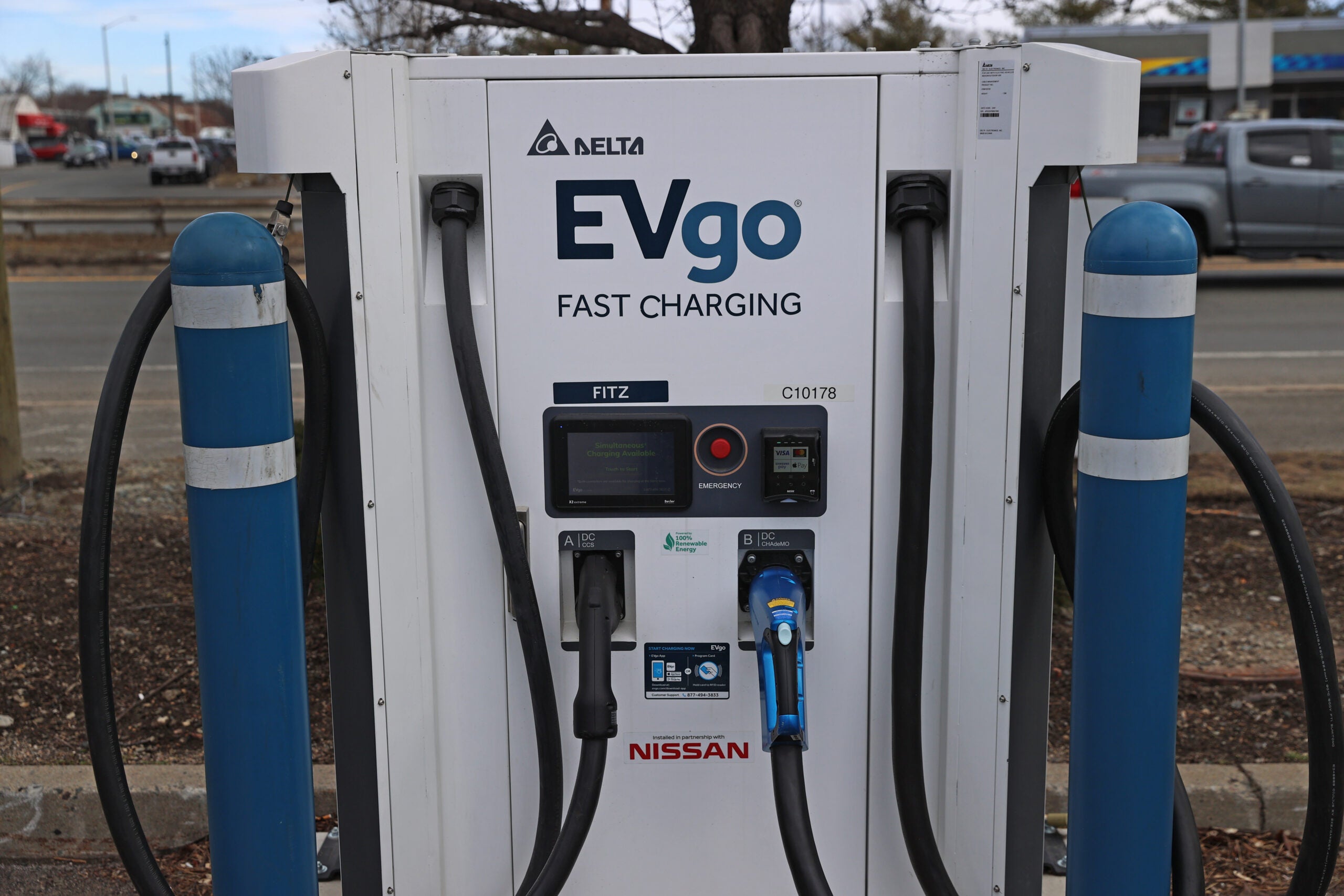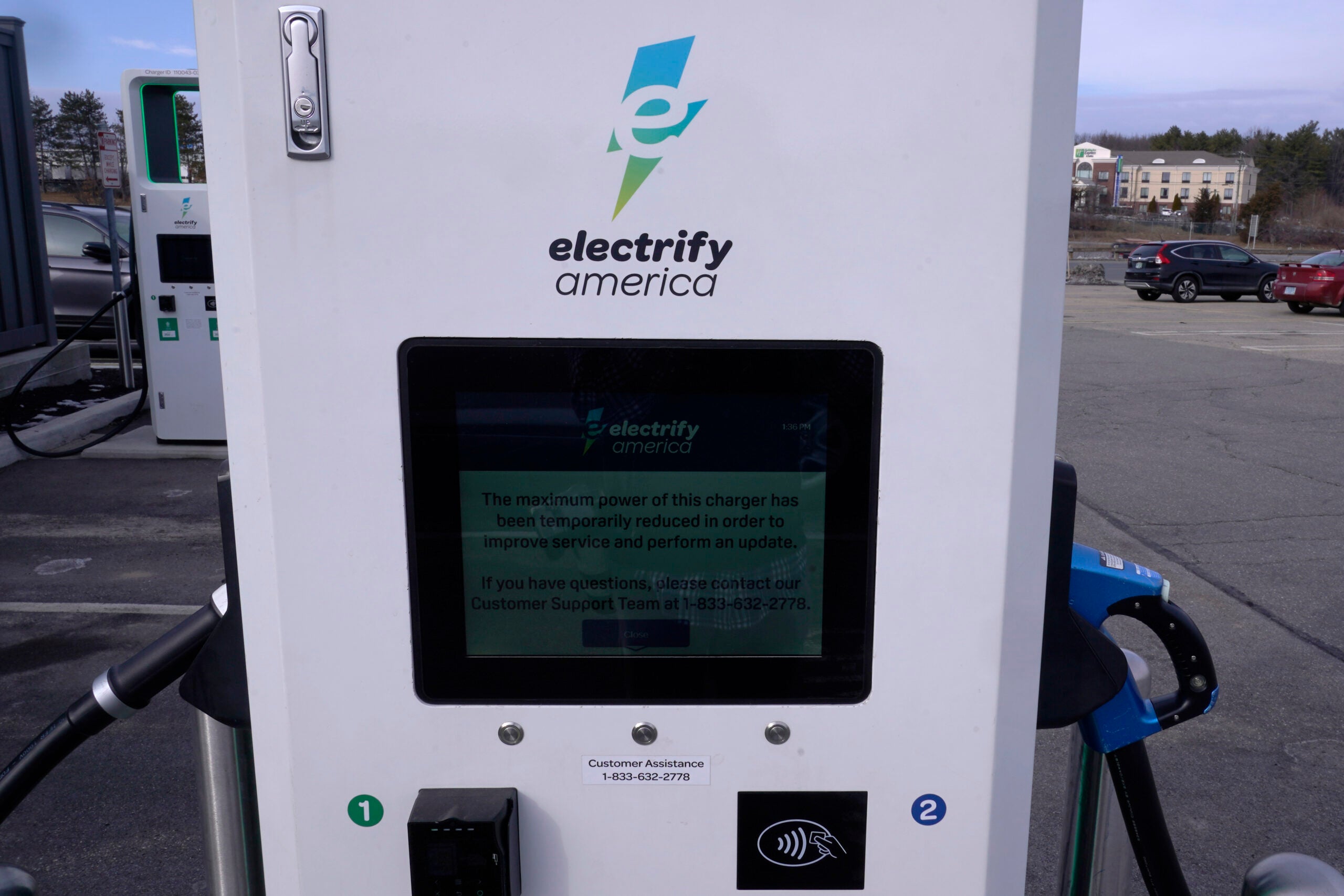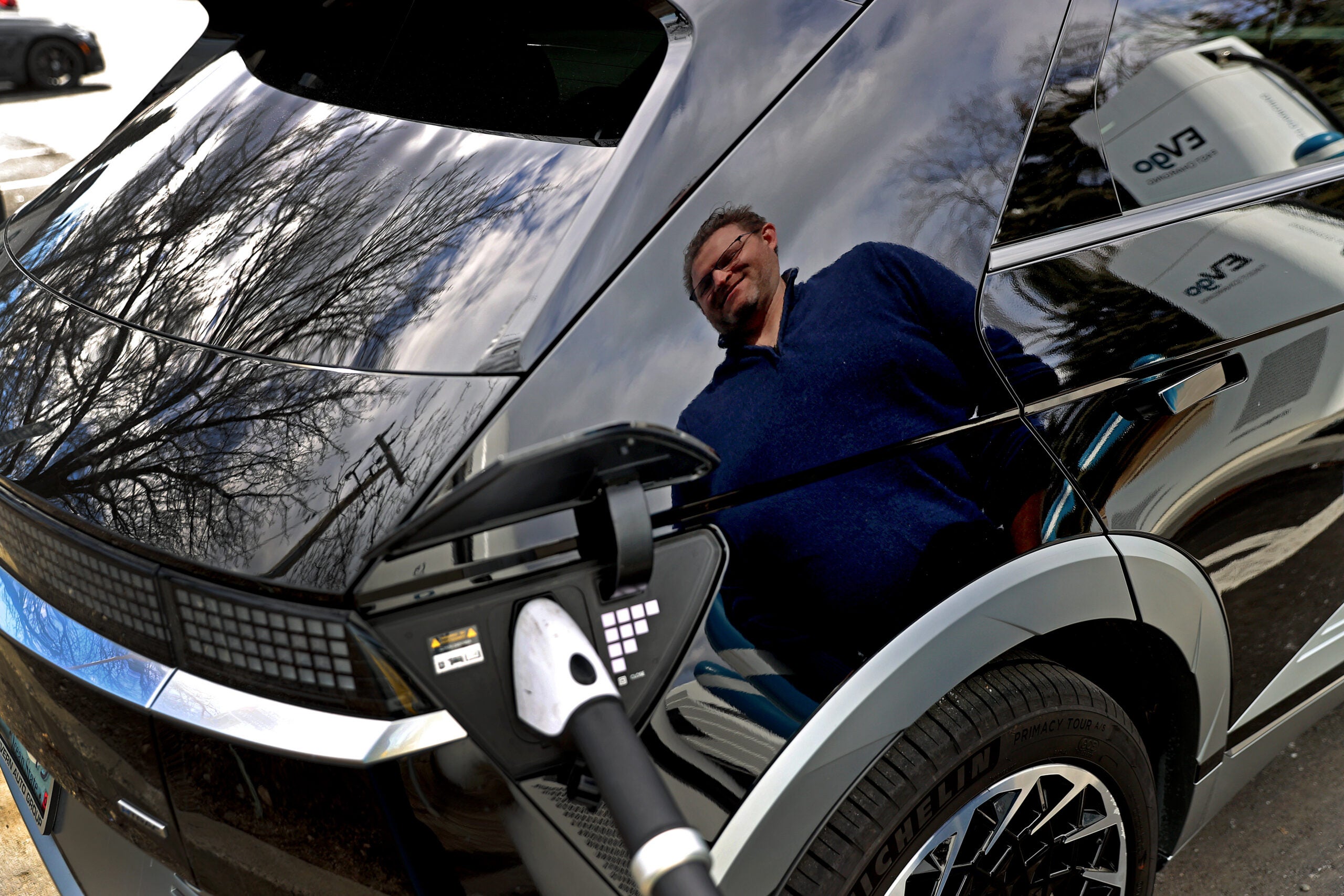Inside the crazy, mixed-up world of electric-vehicle charger pricing
The Boston Globe

Electric vehicle adoption is booming, even as the state is far behind in its plans to reduce carbon emissions from cars and trucks. But charging outside of the home is the Achilles heel of the EV industry, with inconsistent and sometimes high pricing policies, frequently broken equipment, and a lack of chargers in key locations for everyone but Tesla drivers.
It’s enough to give EV drivers a constant headache — and to make people thinking about going electric wait a little longer. Compounding the frustration is that the price of electricity in Massachusetts has skyrocketed, and that increase is already hitting drivers looking to recharge.
To capture the current state of EV charging, the Globe did an informal survey of the pricing and performance of DC (Level 3) fast chargers around Greater Boston over the past three months. While most current EV owners charge at home overnight using slower Level 1 and 2 chargers, DC fast chargers are critical for longer trips and for people who can’t charge at home. Based on the experiences of a reporter charging four different vehicles across five charging networks, a few themes emerged.
Reliability is a major issue, with chargers going offline for weeks or months at a time. Some stations charge by the minute rather than by the amount of electricity consumed, leading to unpredictable pricing. Others have multiple subscription plans or charge different rates at different times of day. Overall, there have been some significant price increases over the past few months.
“It seems like there are so many factors at play,” said Ed Harrison, a Nissan Leaf owner in West Newton who prefers to charge at home as often as possible. “If I’m doing it elsewhere, it’s because I have to, so I’ll pretty much pay whatever they charge me.”
And whatever they charge is going up.
Electrify America, one of the largest operators of DC fast-charging stations in the state, just raised prices by 16 to 19 percent. Smaller rival EVgo made its rate plans more complicated and added a new fee. And Tesla, which raised prices at many of its chargers last year, is slowly opening its national network to other car brands but with higher prices for non-Tesla vehicles.
Charging companies said they needed to raise prices after utilities increased their rates. Electricity prices jumped to 39 cents per kilowatt-hour in February from 27 cents a year earlier, a 44 percent rise in the Boston metro area, according to the US Bureau of Labor Statistics.
In EVGo charging sessions by a Globe reporter, prices averaged 61 cents per kilowatt-hour in March after the new rate plan took effect, compared to 42 cents in January. At Electrify America, effective rates per kilowatt-hour calculated by the Globe rose from 20 cents to 26 cents (though the company charges by the minute, adding an element of uncertainty).
At ChargePoint terminals owned by MassDOT, such as along I-95 and Route 24, prices have remained steady at 35 cents per kilowatt-hour. And prices have been steady at 70 cents — the highest in the survey — at the Nouria network. That new entrant is owned by convenience store chain Nouria Energy and has installed a few DC fast chargers so far in the southeastern region of the state. The calculations include fees and taxes tacked on by the operators.

Contractor Edward Kodzis in Canton would love to trade in his gas-powered Ford F-150 pickup truck for an electric model. But needing to drive hundreds of miles on some days, he’s not confident enough in the charging infrastructure to make the switch, at least not yet. He’s seen the many Tesla Supercharger stations around the state and said he’s encouraged the company is starting to let other brands connect.
“I’d buy a Ford Lightning, a great truck, but I travel the Mass. Pike and those non-Tesla chargers are unreliable,” he said. Tesla, which has so far opened only 10 stations in California and New York to outsiders, would be a game changer, he added.
With or without Tesla, charger availability will be improving dramatically in the next few years. Massachusetts is getting federal grants, including $60 million from the Infrastructure Act, to build dozens more fast chargers — and federal rules require 97 percent up-time for those chargers. Local utilities won approval in January for their own $400 million charger programs, and other private nationwide efforts by everyone from Mercedes to 7-Eleven will bring even more chargers. And Tesla, despite the slow start, has pledged to share thousands of its highly reliable Superchargers nationwide by the end of next year.
That won’t solve the pricing mess, however.
Some EV charger operators bill by the kilowatt-hour, which is sensible since that’s how utilities charge for the juice. Others charge by the minute, which is the amount of time a vehicle was connected to the charger; that means less expensive EVs, which have slower charging equipment, pay more for the same amount of electricity than more expensive vehicles. For example, the maximum charging rate of the $109,000 GMC Hummer EV is about five times faster than the Chevy Bolt EV, which costs under $30,000.
Among popular non-Tesla models, a Volkswagen ID.4 might take 40 minutes to fill its battery to 80 percent, a Ford Mustang MachE 30 minutes, and a Hyundai Ioniq 5 just 18 minutes. Even if all three EVs consumed the same amount of electricity, the price for charging could vary wildly if it is time based. And not all drivers may experience the ups and downs right away, since some cars come with free fast charging for a year or two after purchase.
Nate Sykes knows firsthand how prices can vary. The Providence resident who sometimes drives for Lyft used to have a relatively slow-charging ID.4 but now has the Ioniq 5, the speed demon of charging. At an Electrify America charging session in Connecticut with his old car, he racked up the equivalent of 45 cents per kilowatt to fill up. With the Ioniq 5 at a Foxborough Electrify America charger, he paid just 19 cents per kilowatt.

“I think the per-[kilowatt] rate is much more fair than the per-minute rate,” he said. “Otherwise you’re penalizing someone because they have a slower-charging car.”
Consumer advocates argue that charging by the amount of electricity consumed makes the most sense. For one, several hard to predict variables can affect charging speeds, not just a vehicle’s maximum charging rate. Temperatures outside, equipment in the charger, and how many other vehicles are charging at the same station all affect how long it takes to fill a battery. And charging by time makes it impossible for a consumer to compare prices, Ingrid Malmgren, policy director at nonprofit Plug In America, said.
“If you go to a gas station, you can see the price for a gallon at each station,” Malmgren said. “If charging is billed by time, it would be like going to a gas station and paying per minute of pumping gas — you have no idea what the flow rate is, and it could vary by station.”
No matter the pricing format, however, all Electrify America customers are paying more under the company’s recent price increase. (Electrify America was formed in 2016 as a subsidiary of Volkswagen Group as part of the car maker’s penance for scamming diesel emissions rules. It’s first station — still in operation — opened in Chicopee in 2018.)
The company has two rates, one for slow-charging cars and one for faster-charging cars. On March 6, the price for charging slower vehicles went up to 19 cents per minute from 16 cents. Faster-charging vehicles now pay 37 cents, up from 32 cents. (With a $4-per-month subscription, customers get a discount of about one-quarter off those rates.)
The company offers per-kilowatt pricing in 29 states, but is mum about when it might bring that to Massachusetts. “We understand the customer preference for kilowatt-hour pricing and continue to work on expanding kilowatt-hour pricing to additional states,” a spokeswoman said.
Rival charging company EVgo in January switched from per-minute charging to per-kilowatt charging.
One justification for per-minute pricing in the past was simplicity, EVgo chief commercial officer Jonathan Levy explained. “Customers tend not to speak kilowatt-hour and kilowatt, but people understood time,” he said. Now, more EV drivers understand electric terminology, he said, and per-kilowatt pricing is seen as more fair.
